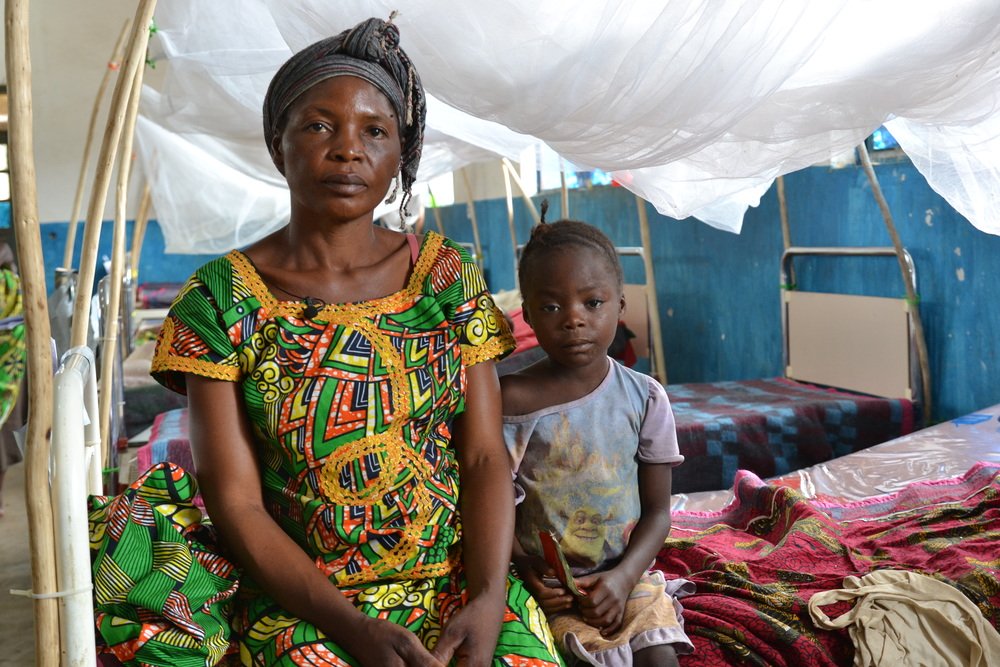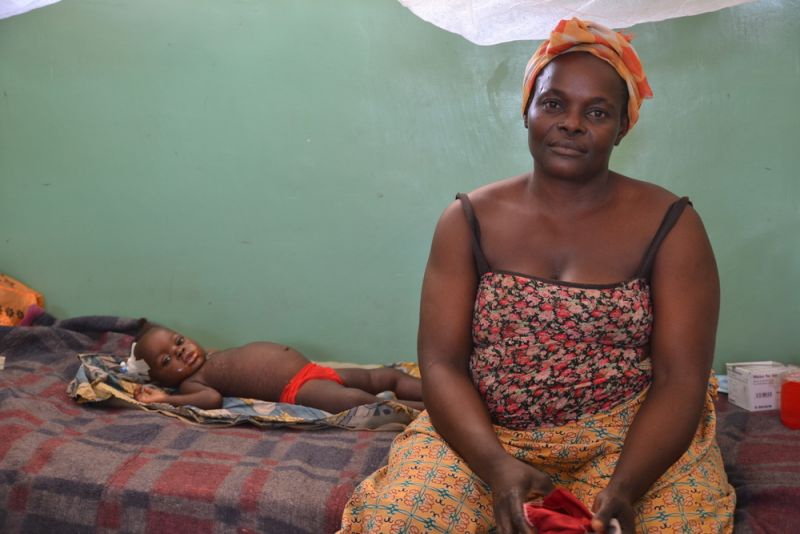The DRC is currently experiencing several concurrent outbreaks of measles with epicenter in Maniema region. The insurgence of new cases, especially in the bordering zones to Maniema, reveals that the epidemic is alarmingly scaling up.
Koko Otato is leaving the measles in-patient department at the MSF-supported Kibombo referral hospital in Maniema province, with her daughter Kioto, who was hospitalised for measles complications.
“I’ve already lost a child to measles. At the time, I hadn’t heard of the disease, and it was too late when we arrived at the hospital. I used traditional medicine; we didn’t know that it was measles, that’s why the child died. But I understood that traditional medicine doesn’t work as well as the hospital’s.
Kioto had a high fever, she was coughing and her mouth was very red. When the spots appeared, I realised that it was measles and I walked her to the hospital: they gave us food, the treatment was free and the child was looked after.”

Mwayuma Ramazani is leaving the measles in-patient department at the MSF-supported Kindu referral hospital in Maniema province with her child who was hospitalised for measles complications.
“I knew about measles, but it’s the first time that the illness has affected my children.
When measles arrived in our village, a lot of children died, especially when the parents used traditional medicine. But those who rushed to the health centres were able to see that their children were saved.
When my child started to get feverish, I used a traditional treatment, I tried to give her an enema, but it didn’t work.
I learned that MSF was there to help, and so I decided to go to the health centre. When I arrived, the MSF mobile team took us to the hospital.”

Joseph Musakane, head of MSF operations (patient care and vaccination) for the Kindu, Alunguli and Kailo health zones in Maniema province
“When we arrived, we found a lot of ill children. There was a measles-related mortality rate of around 12%: now, after our intervention, it is less than 2%.
But it wasn’t easy. Reaching some health zones sometimes requires three days of walking. It takes seven to ten days to transport vaccines and equipment, and to vaccinate all of the children.”
MSF has been active in the DRC for 35 years, supporting the Ministry of Health in eleven provinces, providing healthcare to victims of conflict and violence, to displaced people or to those suffering from epidemics or pandemics such as HIV/AIDS. Furthermore, the emergency response teams are ready to respond across the entire territory in case of an outbreak of a contagious disease, a natural disaster or conflict.
Read more about MSF's work in the DRC.